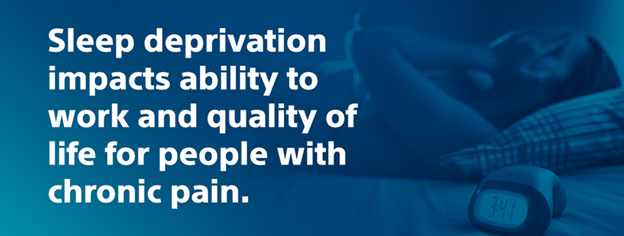Survey among 3,000 people with chronic pain in Germany, Italy, and the United Kingdom underscores the mental and emotional challenges faced by those living with the condition.
With one in five adults in Europe affected, chronic pain is a major burden on health and quality of life in the region.1 Yet the condition remains underdiagnosed and undertreated. September is Pain Awareness Month, and for the fourth year in a row, Boston Scientific has commissioned a survey of people with chronic pain to learn more about their journey, assess the impact chronic pain and to identify ways to encourage those affected to seek professional help.
This year’s survey focused on the impact of chronic pain on the mental and emotional health of those living with it, as the condition affects virtually all aspects of life.
 Young people feel the burden the most
Young people feel the burden the most
Among the youngest respondents (16 to 24-year-olds) the impact of chronic pain on their overall well-being is the highest compared with other age groups. About half express that they feel anxiety caused by their chronic pain multiple times a week (52%). They also reported the highest rate of social isolation, difficulty concentrating, and low morale. Almost one in three of those Gen Z respondents (29%) state that due to their pain they ‘feel like they can’t go on’.
Chronic pain disrupts sleep
Across all markets, genders, and age groups, the data shows how exhausting life with constant pain can be: more than two thirds of respondents (69%) express they have issues with sleep due to their pain at least once a week, and as a consequence one in two report feeling tired (56%). This also has consequences for the professional lives of patients, with one in two reporting difficulties maintaining a regular work schedule.
Duration of chronic pain exacerbates mental health issues
Across all age groups, those who have been living with chronic pain the longest reported the highest rate of negative implications on their mental health, highlighting the need for an early intervention. 70% of those who fell into the group of respondents who have been living with the condition for six years or longer stated they cannot longer enjoy life the way they used to, and more than half declared they cannot deal with everyday tasks.
In all three countries, there seems to be a reluctance or stigma when it comes to discussing chronic pain with anyone, with around one in five preferring to not discuss the condition unless absolutely necessary. But opening up and seeking professional help may be needed to break the silence about chronic pain and identifying a treatment for long-term relief. As last year’s survey already indicated, all survey respondents agreed that chronic pain deserves more awareness and should not have stigma attached to it.
If you are interested in learning more about treatment options to manage pain, and to search for a pain centre near you, visit: https://www.bostonscientific.com/en-EU/health-conditions/chronic-pain.html
1 Policy Connect. About Chronic Pain. https://www.policyconnect.org.uk/cppc/about-chronic-pain Accessed March 2012.
CAUTION: The law restricts these devices to sale by or on the order of a physician. Indications, contraindications, warnings and instructions for use can be found in the product labelling supplied with each device or at www.IFU-BSCI.com. Products shown for INFORMATION purposes only and may not be approved or for sale in certain countries. This material is not intended for use in France.
2024 Copyright © Boston Scientific Corporation or its affiliates. All rights reserved.
